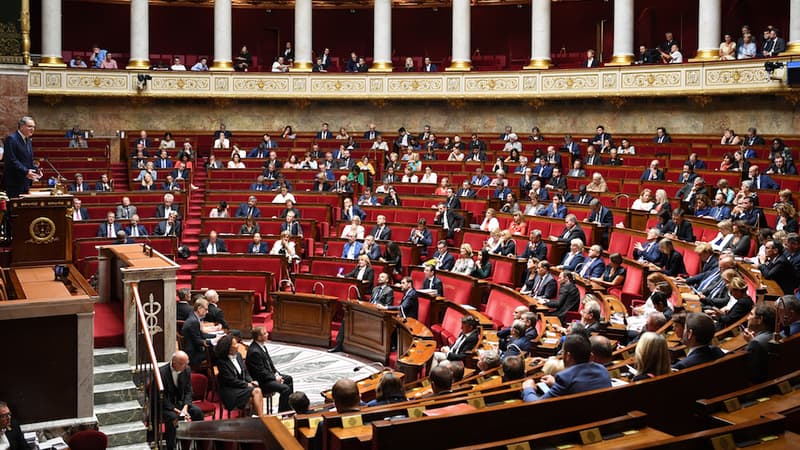After the Senate vote in favor of the pension reform on Saturday, the text continues its legislative journey. It will be examined on Wednesday in a mixed commission (CMP), a decisive step to determine the exact contours of the reform.
The CMP meets when the National Assembly and the Senate have not voted on measures in the same terms. Its objective is to reach a common text between the two chambers of Parliament.
To do this, it brings together seven deputies and seven senators, chosen according to various criteria. Previously, the president and the rapporteur of the commission responsible for the text must be present. In the case of pensions, it is the Social Affairs Commission: for the Assembly, Fadila Khattabi (president) and Stéphanie Rist (speaker) will sit in the CMP on Wednesday.
The CMP must also represent a certain political balance. According to the National Assembly site, four representatives of the majority of each chamber (Renaissance in the Assembly, the right in the Senate) and three of the opposition are called to sit. Seats are also assigned within the two delegations “in proportion to the size of the groups in each assembly,” explains the Senate on its site.
A list quite favorable to the government
The list selected for the CMP on Wednesday on the pension reform is as follows:
Among the deputies
• Fadila Khattabi (Chairperson of the Social Affairs Commission, Renaissance)
• Stéphanie Rist (General Rapporteur of the Social Affairs Commission, Renaissance)
• Sylvain Maillard (Renaissance)
• Philippe Vigier (modem)
• Olivier Marleix (LR)
• Thomas Menage (RN)
• Mathilde Panot (LFI)
among the senators
• Catherine Deroche (President of the Social Affairs Commission, LR)
• René-Paul Savary (rapporteur for the bill, LR)
• Philippe Mouiller (LR)
• Elisabeth Doineau (General Rapporteur of the Social Affairs Commission, UDI)
• Xavier Iacovelli (Renaissance)
• Monique Lubin (PS)
• Corinne Feret (PS)
Of the 14 parliamentarians who will sit on Wednesday, 10 are in favor of the pension reform.
How are discussions carried out in concrete terms in the joint committee? The parliamentarians meet behind closed doors and examine the last voted text, here that of the Senate, approved on Saturday night.
Parliamentarians “may decide to maintain the wording previously adopted by one or the other assembly or develop, for certain articles, a new wording,” according to the National Assembly website. These wording proposals are then put to a vote, which usually takes place by show of hands. In the event of a tie vote, the proposal is not adopted.
An uncertain majority in the Assembly
In the best of scenarios for the executive, if deputies and senators reach an agreement within this commission, the reformed text must be validated on Thursday, March 16, starting at 9 am in the Senate, then at 3 pm in the assembly. This last vote, if it is positive, will be worth the final approval by Parliament.
If the vote of the assemblies on the CMP text is negative, or if the CMP has not managed to produce a compromise text, the classic parliamentary shuttle resumes, starting with the National Assembly, to which the government can choose to give the last word.
As part of the pension reform, the absolute majority in favor of the text is uncertain in the National Assembly: the presidential majority is only relative and the LR deputies are divided on the text – the Nupes and RN deputies are opposed there. Hence the importance of the government reaching an upstream consensus.
Source: BFM TV


